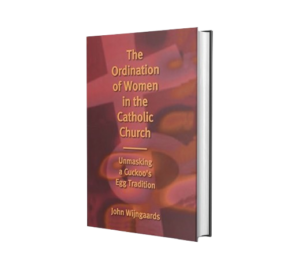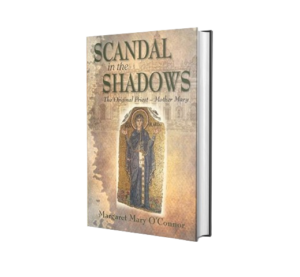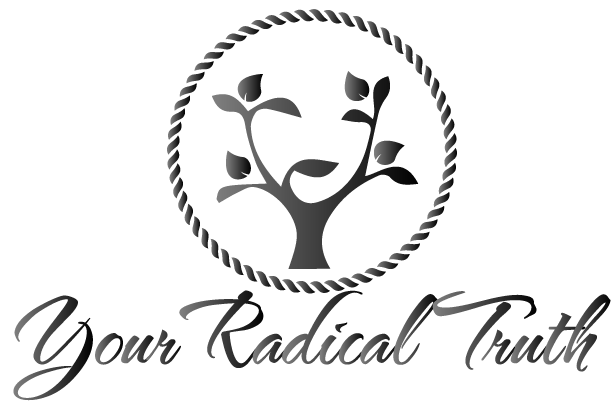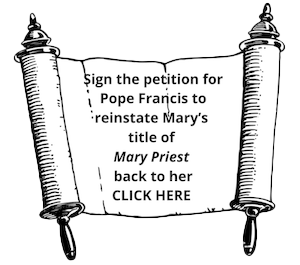The recent passing of John Wijngaards, a former UK priest, is a profound loss for those advocating for the ordination of women in the Catholic Church. His passionate and scholarly voice will be deeply missed, especially as the Catholic Church hierarchy continues to obscure the hidden history of women’s roles in its own past.
John Wijngaards was more than a priest; he was a renowned scriptural scholar and internationally respected theologian. He dedicated his life to championing women’s rights, particularly their rightful place as priests within the Catholic Church—a role they held historically but were unjustly excluded from in more recent centuries.
 My own journey with John’s work began when I encountered his groundbreaking book, The Ordination of Women in the Catholic Church: Unmasking a Cuckoo’s Egg Tradition. One chapter stood out to me above all others: Chapter 19, The Devotion to Mary as Priest.
My own journey with John’s work began when I encountered his groundbreaking book, The Ordination of Women in the Catholic Church: Unmasking a Cuckoo’s Egg Tradition. One chapter stood out to me above all others: Chapter 19, The Devotion to Mary as Priest.
In this chapter, I was struck by an extraordinary revelation: Jesus’ own mother, Mary, was not only revered as the Mother of God but also honored as a Woman Priest, referred to as “Mary Priest.” Furthermore, Mary was upheld as the model of all priesthood within the Church. This insight was transformative for me, shedding light on centuries of deliberate omission by Church authorities—an omission that undermined the trust of Catholic women worldwide. How could the hierarchy justify erasing the truth about Mary, Mother of God, being a priest? What right did they have to deny women their historical and spiritual legacy?
This chapter served as an epiphany for me, sparking a deep realization of how my Church had betrayed not only my trust but also the trust of countless other Catholic women. It was this betrayal, and John Wijngaards’ profound scholarship, that inspired me to write my own book, Scandal in the Shadows: The Original Priest – Mother Mary. For my research, I leaned heavily on the resources of the Wijngaards Institute for Catholic Research. I urge anyone seeking to explore Gender Equality in the Catholic Church to delve into the treasure trove of knowledge the Institute offers.
inspired me to write my own book, Scandal in the Shadows: The Original Priest – Mother Mary. For my research, I leaned heavily on the resources of the Wijngaards Institute for Catholic Research. I urge anyone seeking to explore Gender Equality in the Catholic Church to delve into the treasure trove of knowledge the Institute offers.
John’s advocacy for women’s equality was deeply personal as well. He often recounted a formative incident involving his mother. One day, a parish priest visited their home with a new chalice and placed it on the table. When John’s mother lifted the chalice to admire it, the priest cried out in alarm, “My God, Mrs. Wijngaards, what are you doing?” Confused, she replied, “What do you mean?” The priest exclaimed, “This is a sacred vessel! No woman may touch it.”
John’s mother later shared how humiliated she felt. “I sank through the ground,” she said. “I felt hurt, humiliated, angry. Why should I be kept from touching a sacred object just because I’m a woman? Am I so dirty or profane?” John never forgot her words. “My mother died, and I will die, but the truth will live,” he reflected.
words. “My mother died, and I will die, but the truth will live,” he reflected.
John Wijngaards’ legacy endures through his writings, his advocacy, and the countless people he inspired. His tireless fight for justice and equality within the Catholic Church has left an indelible mark, and his work will continue to light the way for those pursuing truth and reform.


